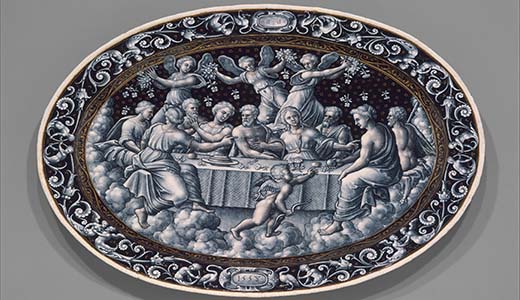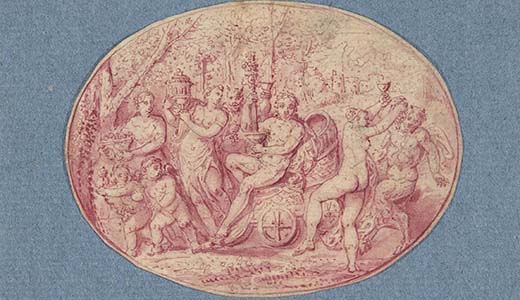 2023
2023
The Wedding Feast of Cupid and Psyche, by Pierre Reymond, 1558. The Metropolitan Museum of Art.
In a break with the typical weekend outing, some Manhattanites are now attending events organized by the Füde Dinner Experience—an artist-founded business offering nude dinner parties. After $88 and an application, participants at these parties can expect to be instructed in practices such as mindfulness and breathwork. Described by the New York Times as “a liberating space that celebrates our most pure selves, through plant-based cooking, art, nudity, and self-love,” the business attracts primarily women; men are allowed to attend, but require recommendations from previous participants for approval.
The draw of the naked dinner party is different for different people, Ms. Max said. Some want to feel more connected to their own bodies, while others want to make new, similarly uninhibited friends. At the dinner earlier in March, guests undressed as soon as they arrived. There was no dressing room, just a clothes rack and hangers off to one side. The main dining hall was warmly lit and draped in sheets of cream and champagne-colored silk. Ms. Max said she makes her events look like Renaissance paintings because “it feels very romantic.”
 c.
200 BC
c.
200 BC
Ornamental design of Bacchanalia, Dutch, seventeenth century. The Metropolitan Museum of Art.
In his Ab urbe condita, a history of Rome originally containing 142 volumes, Livy describes in lurid detail the Bacchanalia of two hundred years prior: popular religious festivals celebrating Bacchus and Liber Pater, two gods carrying connotations of wine, fertility, and liberation. Hosted by mystery cults, the event’s rituals allegedly included feasting and nudity. Understood by many scholars now as an expression of moral panic, Livy’s hyperbolic commentary alleged a pernicious female influence in the cults and took the Bacchanalia to be a prime example of the decadence central in the decline of Rome.
There were initiatory rites which at first were imparted to a few, then began to be generally known among men and women. To the religious element in them were added the delights of wine and feasts, that the minds of a larger number might be attracted. When wine had inflamed their minds, and night and the mingling of males with females, youth with age, had destroyed every sentiment of modesty, all varieties of corruption first began to be practiced, since each one had at hand the pleasure answering to that to which his nature was more inclined.